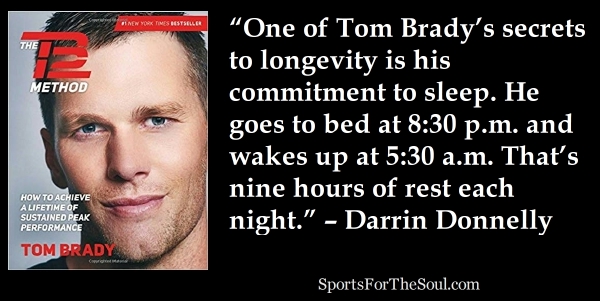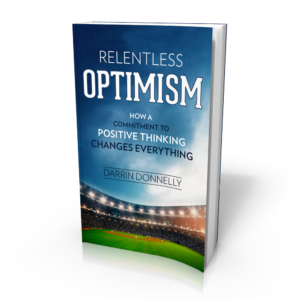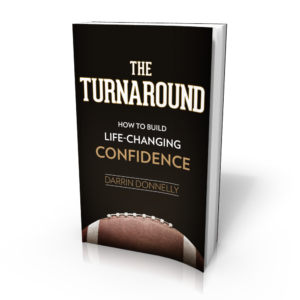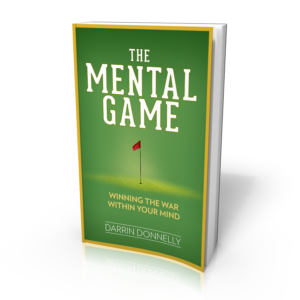 Top coaches and athletes looking for a competitive edge are now tapping into an unexpected power source. They’re tapping into the power of sleep. Yes, sleep!
Top coaches and athletes looking for a competitive edge are now tapping into an unexpected power source. They’re tapping into the power of sleep. Yes, sleep!
It was once a badge of honor for coaches to burn the midnight oil and catch only a few hours of sleep at the office or for certain athletes to show up at the gym each morning before dawn, regardless of how late they were up the night before.
However, scientists have discovered clear evidence that lack of sleep has a tremendously negative impact on one’s mental and physical health. And the sports world has taken notice.
Top coaches and athletes are realizing now that long hours of work at the expense of a full night’s sleep does much more harm than good.
A recent article in my hometown paper, The Kansas City Star, noted that the Kansas City Royals are encouraging their players to start the day later. For spring training, they’ve pushed the start of workouts back an hour, from 10 to 11 a.m. Looking for any advantage they can get and noting the importance of sleep, the Royals realized that with most of their games being played at night throughout the season, it was much more realistic to start the day later than to try to get their players to end their evenings earlier.
In a recent Sports Illustrated article, it was noted that NBA players are now swapping energy drinks for “sleep drinks.” That is, instead of downing caffeinated drinks that aim to boost your energy and keep you alert during the day, it has become popular among players to drink specially-formulated sleep aids that help them fall asleep faster and get more rest at night.
Pete Carroll caused some head-scratching in the NFL when he became the head coach of the Seattle Seahawks and made sleep a priority for his players—demanding that his players monitor their sleep habits and get a full eight hours of rest each night. After winning a Super Bowl in his fourth season with the Seahawks, other NFL teams have started emphasizing sleep as well.
Jim Wendler, a popular strength and conditioning coach, says that if you’re implementing a training program designed to make optimal strength gains, you should be getting eight to ten hours of sleep every night. That may sound like an excessive amount of sleep, but coming from a guy who once squatted 1,000 pounds, perhaps he knows what he’s talking about.
The most famous advocate for a good night’s sleep might be Tom Brady. At the age of 40, quarterbacks are “supposed” to be retired from pro football. Yet, Brady was named the NFL’s Most Valuable Player at the age of 40—in a season where he led the New England Patriots to the eighth Super Bowl appearance of his career. One of Brady’s secrets to longevity is his commitment to sleep. He goes to bed at 8:30 p.m. and wakes up at 5:30 a.m. That’s nine hours of rest each night.
Many other coaches, athletes, and organizations are following suit and restructuring their days to promote more sleep.
Why all this emphasis on more sleep? The science makes it pretty clear.
First off, deep sleep allows your brain to clean out toxins. Failure to remove these toxins will slowly destroy your brain. This is why not sleeping for extended periods of time will make you delusional. Not sleeping for eleven days will actually kill you. Your brain can’t take it.
Those examples are extreme, of course. Nobody in their right mind is advocating avoiding sleep for days at a time.
However, failure to get a full night’s sleep (eight hours for most people) can also be damaging you in ways you never would have guessed.
Did you know that failure to regularly get a full night’s sleep has been linked to depression, confusion, memory loss, anxiety, higher stress levels, poor decision-making, irritability, and lack of creativity? And those are just the mental drawbacks.
Lack of sleep has also been linked to multiple physical problems, including weight gain, high blood pressure, heart disease, type 2 diabetes, chronic fatigue, decreased muscle mass, Alzheimer’s disease, and Parkinson’s disease.
Specifically related to sports performance, studies show that increasing the amount of time you sleep results in increased speed, reaction time, and sport-specific skills (such as shooting accuracy in basketball).
And if you’re one of those guys who thinks it’s “manly” to get by on as little sleep as possible, think again. Studies show that just one week of shortened sleep can reduce your testosterone levels by 60% or more compared to those who get eight hours of sleep each night.
And that’s just one week. Imagine what months or years of inadequate sleep might be doing to your testosterone levels!
The fact is, unless you have a rare medical condition that is hampering your testosterone production, getting a full eight hours of sleep each night is probably the single most effective way you can increase your testosterone. Just a few extra hours of sleep each night can double your testosterone level!
On that same note, studies have shown that testosterone levels among men have been declining, as a whole, over the past several decades. Guess what else has been rapidly declining among Americans during the exact same period? Sleep!
If you’re one of those people who think all this emphasis on proper rest is nothing more than a gimmicky new health trend and that our old-school ancestors didn’t have the luxury to sleep eight hours a day, you’d be wrong. Completely wrong!
Research shows that in the 1940s, only 11% of all Americans slept six hours or less each night. Today, a full 40% of Americans sleep six hours or less. That means four times as many people are getting inadequate sleep now than in the past.
In the ‘40s, the majority of the population (nearly 60%) got eight hours of sleep each night and 84% of the population got seven hours or more. Compare that to the 34% of Americans who sleep eight hours each night these days and is it any wonder why all the health consequences associated with inadequate sleep are on the rise?
Looks like our old-school ancestors understood the importance of sleep much better than we do.
In light of all this information, I wonder if the days of high school and college coaches scheduling team workouts at 5:00 or 6:00 a.m. may be coming to an end. After all, how realistic is it to expect student-athletes (with their classes, studies, families, and social life) to be asleep by 8:00 p.m. every night so they can get a full eight hours of sleep before waking up at 4:00 a.m. to get ready for practice?
Regardless of whether you’re actively involved in sports or not, I hope this article gives you the necessary motivation to make sleep a priority in your life. It’s easy to do; it simply requires a little discipline.
If starting your day an hour or two later isn’t an option (which is the case for most people), start going to bed an hour or two earlier. If you think you can’t fall asleep that early, make a commitment to simply be in bed at that time. Your body will eventually adapt.
The evidence is overwhelmingly clear: you need to make sleep a top priority if you want to be at the top of your game mentally and physically.
In other words, if you want to think, play, and live like a champion, you better start sleeping like a champion!






